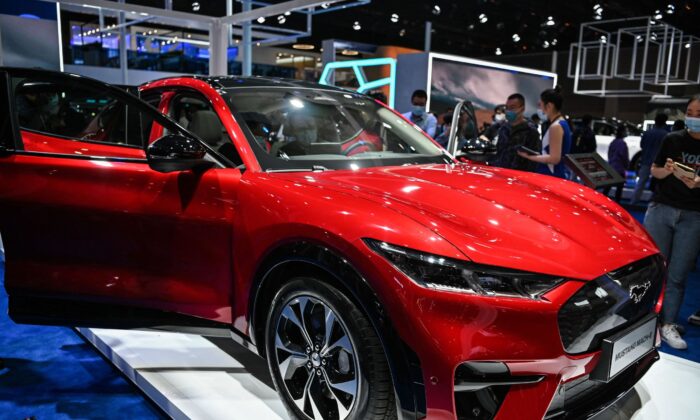Ford’s electric vehicle division continued to struggle in the first quarter of 2024, reporting a loss of over $1.3 billion while its gas car segment remained profitable. This loss was part of the Model e segment, which covers the company’s electric vehicles, while the gas and hybrid vehicles (Ford Blue) and commercial segment (Ford Pro) reported profits. The Model e segment recorded a $1.32 billion loss in the first quarter, making it the only segment to report losses.
Despite selling 20,223 electric vehicles in the first quarter, Ford’s Model e segment faced significant losses, equating to over $65,000 lost per vehicle. In 2023, the segment had reported a net loss of $4.7 billion. The electric vehicle sales included Mustang Mach-E SUVs, F-150 Lightning trucks, and Ford E-Transit electric vans.
Ford’s CEO acknowledged the challenges faced by the electric vehicle division, calling it a ‘huge drag’ on both Ford and the industry as a whole. He emphasized the need to make progress in the Model e department to build a sustainably profitable EV business. The company’s CFO projected further losses in the Model e segment for the year due to pricing pressure and investments in new vehicles.
In response to the losses, Ford scaled down its EV investments and made adjustments in capital spending. The company aims to ensure profitability in its next cycle of products and build a sustainable EV business without the need for subsidies.
Despite declining interest in electric vehicles among Americans, the Biden administration continues to promote policies that encourage the transition to cleaner vehicle technologies.
Car Dealerships Criticize EPA Standards for EV Sales Mandate
Car dealerships have raised concerns about the EPA standards, stating that the regulations are pushing for an increase in electric vehicle (EV) sales that surpasses current consumer interest.
A coalition of dealerships pointed out that despite various incentives, customers are still hesitant to purchase EVs due to concerns about affordability, charging infrastructure, performance in cold weather, and resale value.
The coalition further criticized the regulations for projecting a significant spike in EV sales in 2031-32, with a mandate that two-thirds of all vehicles sold must be electric, which they deemed unrealistic.
They argued that the EV mandate was not the result of a transparent congressional debate, but rather a decision made by unelected Washington bureaucrats dictating what types of vehicles Americans can buy.






